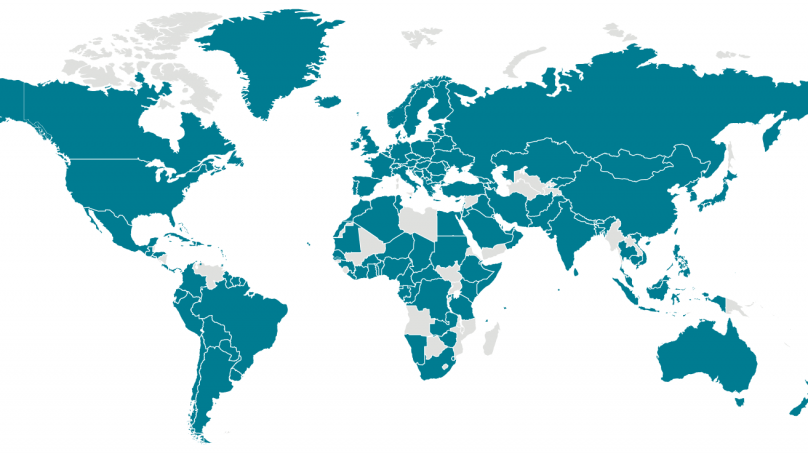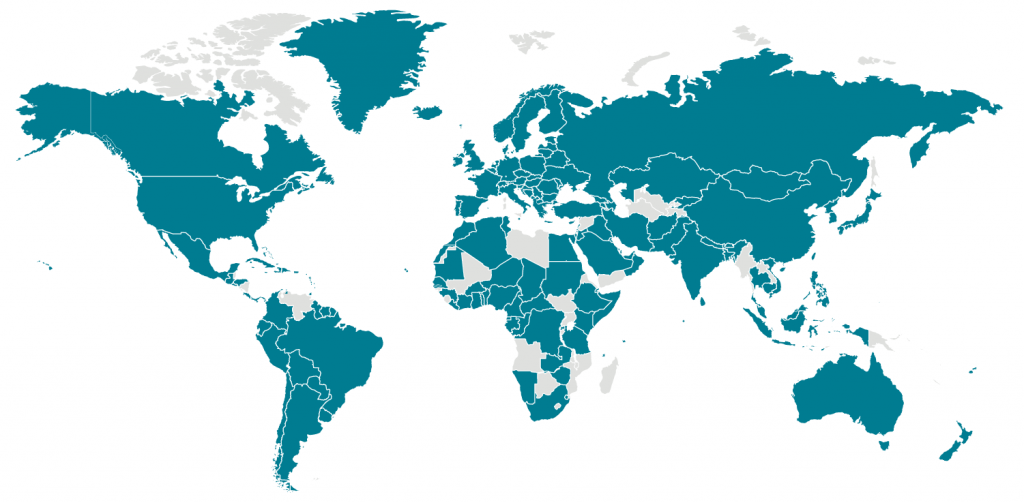
 Where are we now in the midst of this pandemic? What does the future have in store for the global economy? These are just two of many questions we’re all asking as COVID-19 slowly dismantles the international hospitality sector. As we wrestle with the challenges, our trusted consultants guide us through these choppy waters.
Where are we now in the midst of this pandemic? What does the future have in store for the global economy? These are just two of many questions we’re all asking as COVID-19 slowly dismantles the international hospitality sector. As we wrestle with the challenges, our trusted consultants guide us through these choppy waters.

Mohamed Najia, a regional hospitality veteran with over three decades of success across the segments of the industry, tackles the issue at hand
What is the global impact of the Coronavirus on the hospitality sector?
Unfortunately, the hospitality industry has taken the biggest hit from COVID-19 or the Coronavirus. Airlines, the tourism industry, hotels, restaurants, cafes and catering sectors have all been massively affected because of people’s fear of contracting this flu from being in crowded places, alongside awareness campaigns from governments warning them to avoid unnecessary travel and public places.
While it’s too early to put the figures on paper, the cost of the impact of COVID-19 to the hospitality sector will undoubtedly reach billions. The UNWTO has predicted negative growth of between 1 percent and 3 percent, down from between 3 percent and 4 percent, which translates into an estimated loss of between USD 30 billion and USD 50 billion in international tourism receipts. This stems from a combination of many major airlines being either grounded or on the verge of bankruptcy, all major events being canceled, such as ITB Berlin, the world’s largest tourism trade fair, the Tokyo Olympics 2020 looking likely to be delayed, all UNWTO events suspended until April 30, all cinemas closed and all major sports leagues and competitions postponed. Pilgrimages to sites such as Umrah, which traditionally receives from 18 to 20 million people each year, is restricted and many countries are in lock down, thus disabling even the domestic tourism segment, resulting in absolute catastrophe to the industry. Occupancy rates in hotels are at an all-time low too, down to around 5 percent or, in best-case scenario, 15 percent. In Kuwait, the airports have been shut down and all restaurants and cafes have been instructed to offer delivery orders only, with no dine-in services. All malls, cinemas and gyms are closed, while people are being encouraged under strict instruction to avoid public places, which is having a direct impact on the hospitality sector. The most concerning aspect, though, will be the effect on small and medium-sized businesses, which constitute 80 percent of the sector and on which so many livelihoods depend. Since between 60 and 70 million people work in this sector, we hope the government can lend a huge helping hand in the current circumstances and that the situation will return to business as usual as soon as possible.
What measures are being taken to help tackle this pandemic?
At the moment, the industry is following the government guidelines for preventing the spread of COVID-19, which we know is highly contagious. As explained, these include the complete shutdown of government offices, malls, cinemas, health institutions and public parks, while instructing restaurants and cafes to close dine-in services and provide food on a delivery basis only. People who have recently traveled from areas where there is infection are also being placed in quarantine, while the government is increasingly encouraging people to stay at home and isolate themselves in case they begin displaying symptoms of the virus. While the impact of this virus on the hospitality industry has been huge, we must also note that these steps are in the best interests of the people and for their safety. The government has done a fantastic job of containing the spread of the virus, rather than reacting late after it’s spread out of control. The impact may appear massive now, but if the containment in the short term is successful, businesses can begin returning to normal sooner rather than later.
What best practices (action plan) do you recommend for the hospitality industry?
The best practices at the moment for the industry would be to devise a comprehensive comeback plan for after the COVID-19 spread is contained and lives have returned to normal. In addition, ensuring proper guidelines are in place from the government, with the best interests of employees and customers at heart, should be a top priority.
- Airlines: should halt travel for now and prepare for the post-Coronavirus phase, which I believe will see a huge surge of people traveling from one place to another after being isolated.
- Restaurants and cafes: should focus on their marketing campaigns post-COVID-19, and for now target deliveries rather than dine-in. They also have to ensure the safety of customers and employees by following healthcare guidelines, such as wearing masks, gloves and keeping hand sanitizers available.
- The tourism industry: should close down popular places and focus more on post-COVID-19.
- Events: should be postponed for now to avoid mass gatherings of people and rescheduled.
One thing the entire sector can do is to utilize this time to look after their staff and educate them so they’re equipped to deal with the virus and serve clients better afterward. The government, too, should use their resources to support this important sector, which contributes up to 20 percent of GDP in many countries.
How much time do you think the hospitality sector will need to recover from the Coronavirus?
It all depends on containment and how quick we are to successfully prevent it from spreading any further. However, I believe right now, we remain at the early stage, since it’s still increasing in the US, the UK and other European countries, and sub-continent countries like India and Pakistan. In the Middle East, too, we are only just beginning to feel the effects, so I believe the sector will need at least five or six months to recover. However, things will change dramatically if a vaccine is introduced, since this will bring a sense of relief and security to the people.
What do you believe to be the best course of action for the post-Coronavirus phase?
I expect the economic chart to begin heading upward again once the crisis is over. People love to travel around the world and I’m confident that the first thing they’ll do once things improve is to resume their bucket list plans. Similarly, most people nowadays love eating out, so there will be a huge surge in the number of customers going back to their favorite restaurants and cafes once they reopen. But we must also bear in mind that there will be a definite change in behavior, such as people preferring to avoid crowded places and expecting hand sanitizers to be readily available, so outlets and institutions will have to maintain the highest standards to keep their customers satisfied. While the situation is challenging right now, we must remain optimistic and have trust in the government that the situation will improve.

Abdul Kader Saadi, managing director and owner of Glee Hospitality Solutions, breaks down the regional market in the wake of this crisis
What is the global impact of the Coronavirus on the hospitality sector?
The global impact on the hospitality sector has been direct and significant, with many countries, such as France and Italy, having already closed down their restaurants and entertainment sectors. Other nations, such as Kuwait and Lebanon, have also followed suit. This raises economic concerns, such as whether these businesses can afford to continue paying rent and salaries during these extraordinary circumstances. According to some reports, in the month of January, some 250 outlets closed down in Lebanon as a direct result of the Coronavirus, compounded by previous unrest. Recently, Saudi Arabia ordered the closure of all F&B outlets, and all licensed outlets have also ceased trading in the UAE. In the midst of its high season, the UAE has already canceled all events – both large and small – and in some cases, the upfront costs had already been laid out, so this raises the question of how they’ll recover them. March usually features the food festival, so this was among the events that didn’t take place. We took part in one event which produced just 20 percent of projected sales as a direct result of the virus’s negative impact. Hotel occupancy has plummeted, with some sources putting it at 30 percent or less. Fewer tourists are visiting outlets and several hotels are sending staff home on unpaid leave to reduce their headcount. In the local market, people are not making public outings and, in general, simply not going out. It’s safe to say that without urgent global government intervention, many businesses may close their doors, unable to cope with the circumstances and direct impact of the virus. Some governments have taken action; for example, in Singapore, the decision was taken to reduce rents for eight weeks to help support businesses, while in Italy mortgage repayments have been frozen.
What measures is the industry taking in light of the challenges it faces?
Overall, increased levels of hygiene enforcement and precautions are being implemented, while operating costs are being reduced and controlled wherever possible, since business will be slow across the sector.
What best practices (action plan) do you recommend for the hospitality industry?
In our Saudi market, we are providing hand sanitizers to all our customers and menus are being laminated in order to create a standardized method for wiping them down with disinfectant. Key members of staff are wearing extra masks and extra vigilance is being implemented when it comes to cleaning down restaurants in between shifts. In terms of finances, restaurants are attempting to reduce expenses wherever possible. On a separate note, the UAE government has now announced a reduction in utility fees and other measures to help combat the negative impact of this crisis.
How much time do you think the hospitality sector needs to recover from the Coronavirus phase?
Prior to the Coronavirus emergence, cashflow was already tight in the UAE due to 18 months of slow trade previously, which will compound the sector’s ability to recover within a certain time frame. Generally, it takes between four and five months to recover from one bad month and no one can be sure of how long the current situation will last. In terms of survival, only healthy restaurants with strong financing will manage to keep going. Certain extension implementations will be key to improving the odds of survival; for example, landlords extending rent-free periods, and loans, such as mortgages, being frozen, similar to what has been done in Italy, to allow developers to pass on the rent reductions or operate rent free. Alternatively, suppliers could extend payment plans, although this could be difficult, given that they were already having trouble with collections and work on payment plans of 45-to-60 days. As we can see, suppliers will also face issues.
What do you believe to be the best course of action for the post-Coronavirus phase?
New marketing activities and initiatives will have to be implemented and new products created to encourage consumers to venture out again. Ultimately, we have no idea how long the situation will drag on for, so for now, the best course of action is to sit tight and monitor developments.

STR’s Robin Rossmann, managing director (Right), Philip Wooller, area director (Left), and Sarah Duignan, director, client relationships (Middle), discuss the global repercussions of the Coronavirus on the industry
What has been the impact of COVID-19 on hotel performance?
Coronavirus has and will impact our industry significantly – China and Chinese outward-bound markets already been severely affected – but it’s no longer just a China issue; perception/reality of risk has changed behavior. Europe and the Middle East are already seeing the impact of reduced travel. This will likely spread wherever the virus spreads.
History tells us that the rebound could be sharp; the SARS crisis is not directly comparable, but it is indicative. However, the increased importance of China, consumer cautiousness and the virus spread could mean a slower recovery, especially given that the virus has become a pandemic.
What you can do now is:
- Ensure appropriate operational actions to reduce risk.
- Don’t panic – use data to compare actual results and forward bookings to market, not last year.
- Remember this is about lives, not numbers.
















